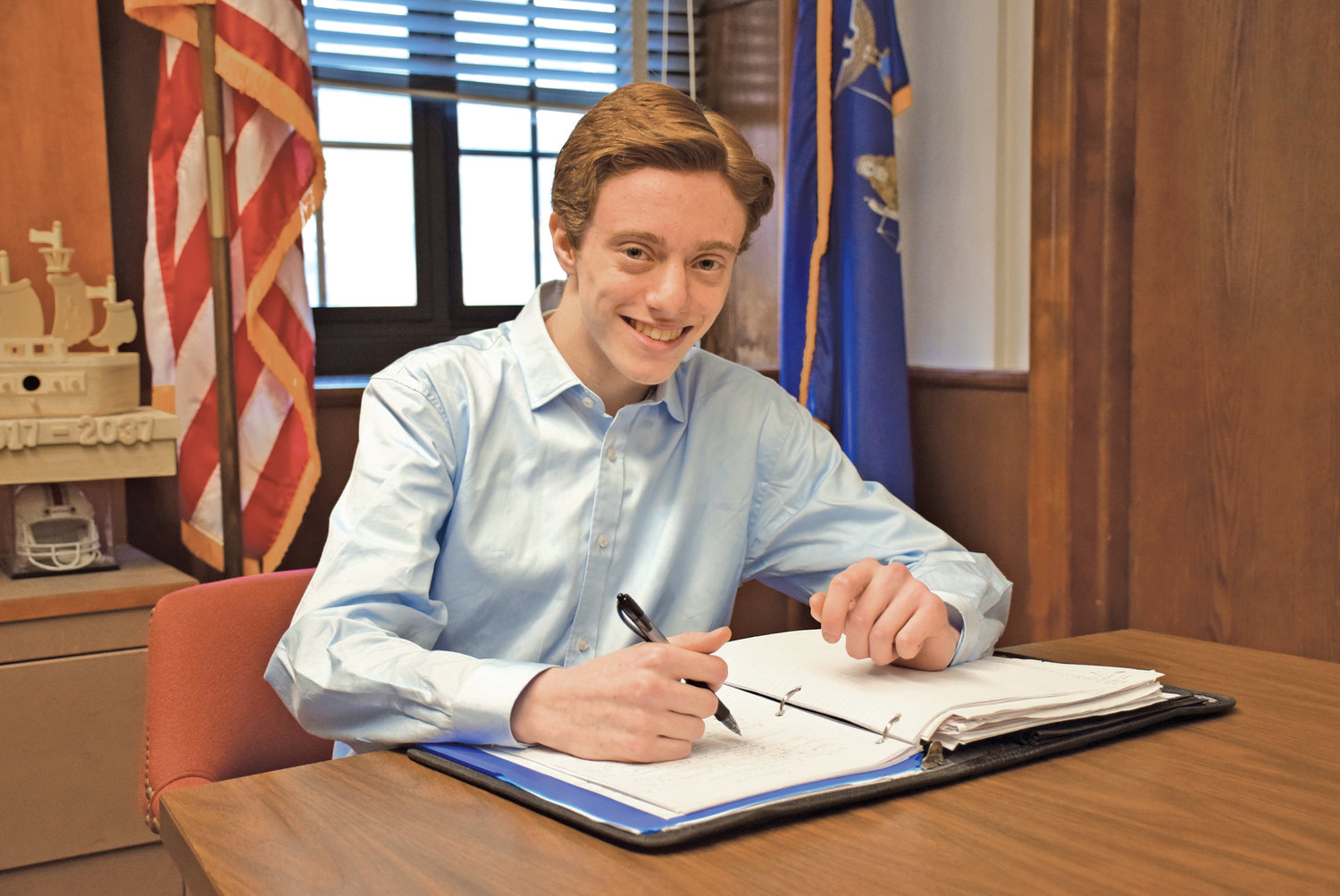Mepham student to speak for the 'gifted' on Capitol Hill
What if Christopher Columbus, before setting sail, decided not to take an uncharted route, and instead followed a known path to India, and never landed in America? Questions like this one, which warp past events, help Mepham High School sophomore Ronald Reznik challenge himself in history class — his favorite. As a “gifted” student, it’s only natural to want such additional challenges, he said, as he is far ahead of many lessons.
With a mature demeanor that belies his age — 14 — Reznik describes gifted students as those who are “not necessarily high achievers in terms of grades, but simply have a different, unique way of thinking.” Advanced Placement classes can lack challenge, he said, so gifted education programs are needed.
Starting March 15, Reznik, of Bellmore, will spend three days in Washington, D.C., advocating before members of Congress on Capitol Hill for mandated gifted education. He was chosen as the National Association for Gifted Children’s first student representative for the annual Leadership and Advocacy Conference, which is attended by many educators of gifted students.
Throughout the school day, Reznik craves a “deeper knowledge” from his lessons, he said, because history assignments can sometimes be “surface level.” He was part of the Alpha Program, a gifted students program, at Saw Mill Road Elementary School as a second-grader. Mepham, though, does not have a gifted program of its own, leading to Reznik’s deep dive into the topic over the past year and a half.
As a gifted elementary school student, Reznik was pulled out of class for a few hours twice a month, he said. Many of the 38 states that mandate gifted education, however, make it full-time, which he sees as vital. Students are taught additional content and critical thinking. “In the case of history, you wouldn’t only learn what happened,” he said. “You would learn why it happened, how it happened and what if it happened differently.”
To support his stance on gifted education, Reznik read the gifted education laws in other states, including New Jersey, Texas and Illinois, and wrote a paper arguing for such programs. It received a Scholastic Art and Writing Awards gold medal for the northeastern competition, and is up for national recognition. It will be part of his pitch to federal legislators.
Writing an award-winning essay, though, was not enough, so Reznik took more action. He drafted his own legislation and sent it to his state assemblyman, David McDonough, hoping to catch his attention. A response from McDonough indicated that the bill would be brought to Albany — and it is now registered as a bill in the Assembly.
His draft law mandates gifted education programs from kindergarten through 12th grade. The National Association for Gifted Children employs a test that identifies gifted children — like an IQ test — to see not only what a child knows, but also how they think. His legislation would also rely on teachers to identify students in need of a more challenging program.
“Many times I feel isolated,” Reznik said, recounting being disengaged while topics that he knows thoroughly, like World War II, are discussed in class. But he does not feel alone in being gifted. “I know of several students who I’d say are in the same boat as me, who would be in need of gifted education,” he said.
“Gifted education is vital because it’s for children who need that extra challenge,” said Gail Angert, a teacher in North Bellmore’s Alpha Program. “It promotes divergent, higher level thinking and provides a whole set a skills for dealing with more abstract ideas.”
Showing his interest in what is happening on the world stage, Reznik started Mepham’s Model United Nations club last year, which sometimes initiates “historical simulations” to imitate how U.N. members would respond to major world events. It deepened his love of history and helped strengthen his public speaking skills, which will come in handy speaking before U.S. representatives and senators.
His trip to the nation’s capital will also be an inspiring one for Reznik, who plans to study political science in college and then attend law school to study international law. He can already see himself getting into politics, he said.
But for now, Reznik’s focus remains squarely on gifted education. “I just know that no matter what district you’re in, the satisfaction of your curiosity shouldn’t depend on what zip code you’re in,” he said.

 55.0°,
Overcast
55.0°,
Overcast 




